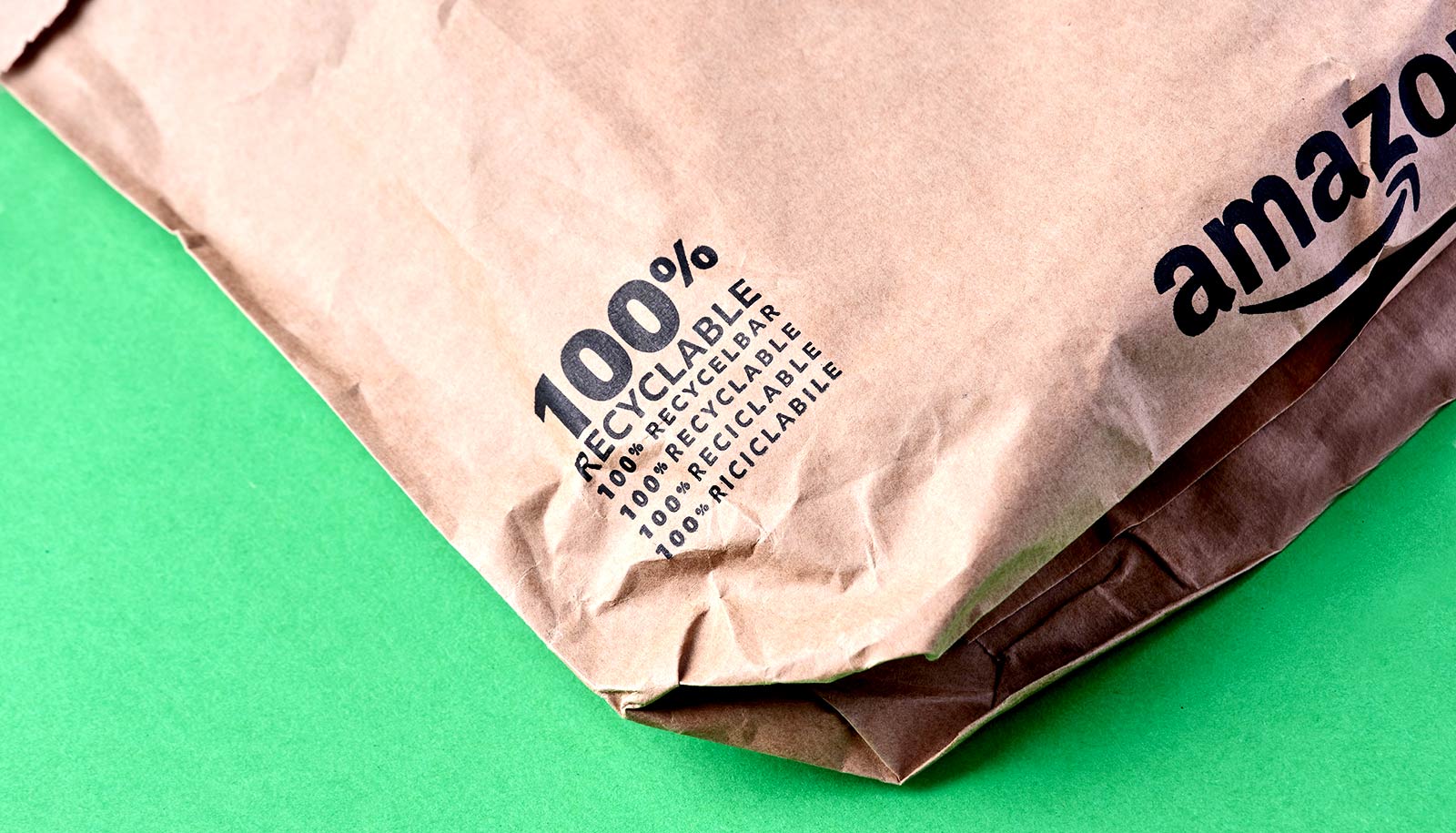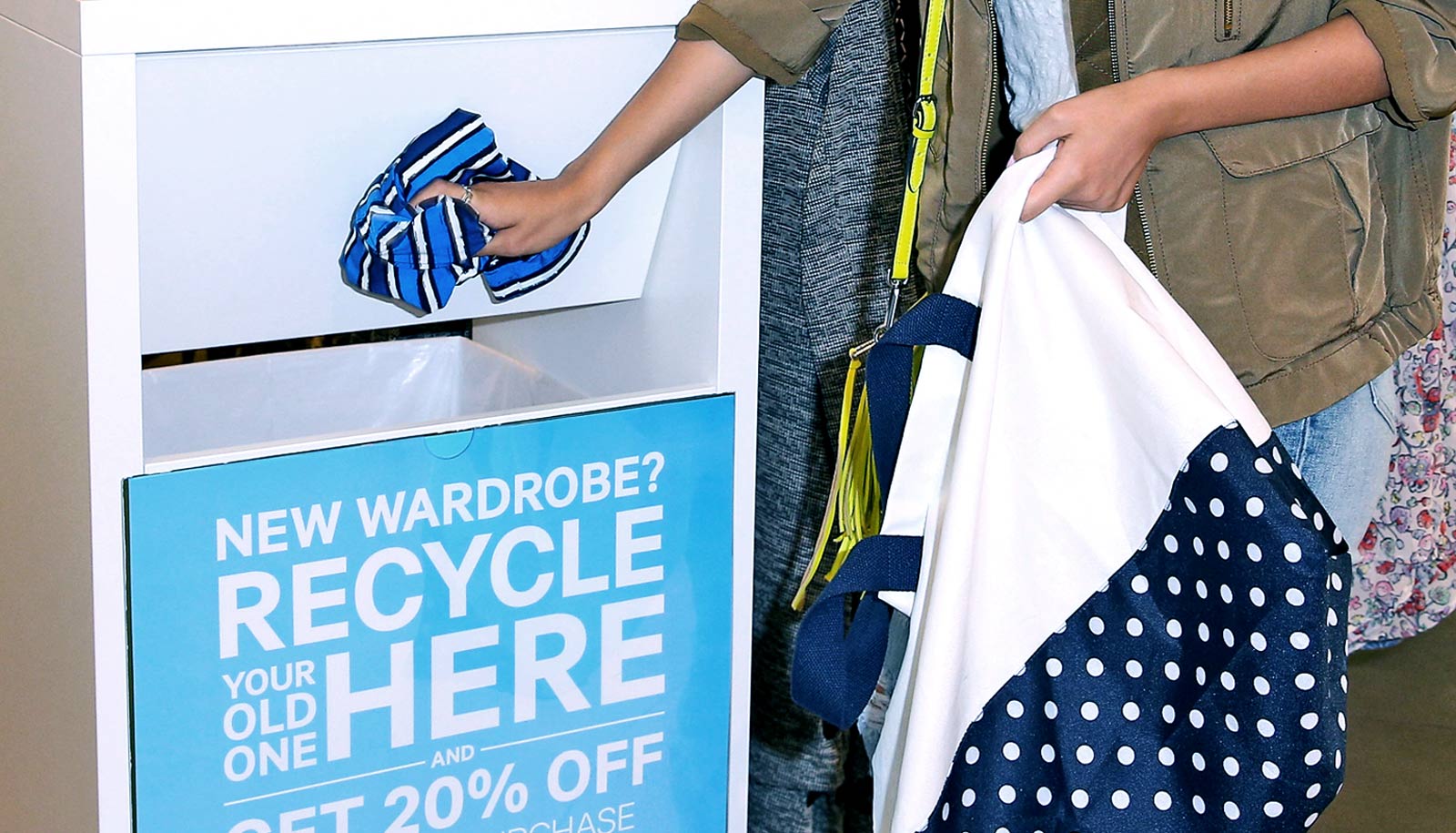A new book punctures two of the central tenets of corporate sustainability efforts.
The automotive industry is becoming electric. Packaging companies are using compostable plastic. Clothing manufacturers are embracing “vegan” and “eco-friendly” materials. By supporting these companies, we could be on track toward a bright and sustainable future.
Except that we’re not, argues University of California, Santa Barbara industrial ecologist Roland Geyer. After decades spent studying the impact of business on the environment, Geyer, a professor in the Bren School of Environmental Science & Management, has found only a widening gap between upbeat corporate sustainability messaging and the reality of a deteriorating environment.
“We need to take a good, hard look at what’s going on here because it’s not working,” he says of strategies that have been embraced by corporate sustainability plans since the 1990s.
In his new book, The Business of Less (Routledge, 2021), Geyer takes aim at the assertion that we can achieve sustainability merely by focusing on reducing the environmental impact per product or service and at the belief that increased revenues or profits should be the sole motive behind corporate environmental efforts.
Often billed with the buzzwords “eco-efficiency,” and “win-win,” corporate sustainability strategies tend to focus on decreasing the ecological impact of their products—say, the transition from internal combustion engines to electric motors in cars—in a move that achieves social and ecological goals while increasing profitability. Everybody wins.
Behind the scenes, however, it’s a different story.
Corporate ‘sustainability’
“The annual amount of stuff we make and the energy we consume has just skyrocketed, throughout the 20th century and continuing into the first 20 years of this century,” Geyer says.
“For instance, our cars are more efficient than they were in 1991, which is great,” he explains. “But in 1991 the world made about 47 million cars; in 2019 we made about 92 million cars. So just since 1991 we have doubled the annual production of cars.” Annual production of commodities such as steel, aluminum, and plastic have tripled since 1991, he adds.
What gains we think we’ve made by buying more efficient goods are eclipsed by the sheer amount of goods that are produced, and the energy and resources that go into making and using them.
Consumer behavior is a confounding factor as well. Purchasing eco-friendly products often leads to a “rebound” effect, in which consumption is increased: owners of electric cars may drive farther, users of energy-efficient appliances may use them more often, offsetting gains the product might provide.
Evidence of the apparent failure of these strategies can be seen in the steady rise of our greenhouse gas emissions every year, despite all plans and products to help us become carbon neutral by mid-century.
“‘Win-win’ and ‘eco-efficiency’ have had 30 years now of proving themselves as concepts,” Geyer says. “Apart from a few case studies, overall, it becomes ever more clear that the environment isn’t improving, it’s getting worse.”
Geyer’s stance is a hard-fought one; he remembers when win-win and eco-efficiency were first introduced as business practices back in the 1990s.
“I was right there; I actually was in business school myself in 1998,” he says. “There was a lot of enthusiasm about those ideas. It was the prevailing narrative.”
But over the course of his work as an industrial ecologist, applying the principles of life-cycle assessment—which follows the environmental impact of a product from the moment raw materials are extracted to the time the product is thrown away—he became aware of a growing disconnect between the narrative and the actual environmental effects. The environmental problems weren’t going away.
More, more, more
The root cause? Growth, which creates more wealth, which leads to more consumption, which fuels more demand, which stimulates more production, which equals more growth but also results in more greenhouse gas emissions.
The solution? Less. Traditional economic growth, Geyer says in his book, “is most certainly unsustainable.” We can’t design our way out of environmental degradation with our pattern of increasing consumption.
This is where “net green” comes in. Coined by Geyer and Trevor Zink, a former PhD student at UC Santa Barbara, now a faculty member at Loyola Marymount University, “net green” refers to business activities that lead to an overall reduction in environmental impact. It’s an approach that values the prevention of environmental impacts over control or remediation. Recycling, reuse, opting for less environmentally harmful material are part of this approach, as is the notion of less physical output.
Not surprisingly, the net green principles can apply to households as well, where people can make the same types of choices on smaller scales. How we travel, what we choose to eat, and how much stuff we choose to surround ourselves with are subject to the net green approach.
“Everything you do is going to have an environmental impact; the idea is to focus on things that lower the impact of the things you already do,” Geyer says. Buying an electric vehicle is net green if you’re using it to replace your SUV, he explains, but not necessarily so if you already own other cars.
Less, less, less
For an economy and a society that have come to rely on continuous growth, production, and accumulation as indicators of prosperity and success, the idea of having less can be a difficult pill to swallow.
“We need new narratives of what the good life is,” Geyer says. For business it could mean turning sustainability into a business goal, acknowledging the profitability trade-offs that must be made in pursuit of a healthy planet. For individuals, it might be the act of being happy with less. We could get an opportunity to do just that over the winter holidays, as supply chain disruptions continue to separate us from our stuff.
“It’s not just about being terribly frugal,” Geyer says. “One alternative could be just to spend discretionary income on people, rather than things. So we’re not buying gadgets, we’re getting massages and music lessons. That could be one aspect of a transition to a more sustainable way of life.”
Source: UC Santa Barbara


